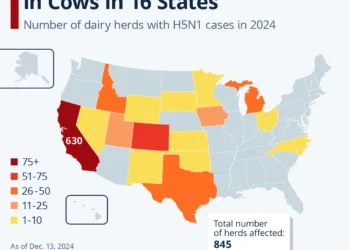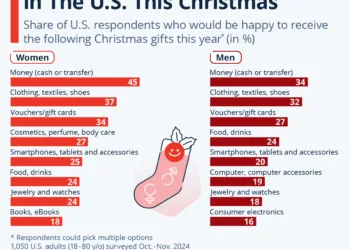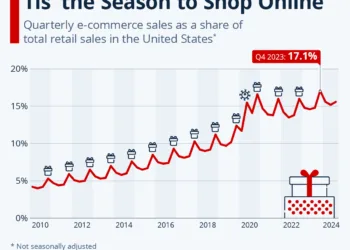At times, Donald Trump can be considered the G.O.A.T. — the “greatest of all time” — among U.S. presidents. However, it’s essential to note that “greatest” here refers more to quantity than to quality.
He stands out notably as the greatest liar, with media reports tracking an astonishing tally of lies and exaggerations, including over 30,000 during his presidency and 40 within a single recent rally in Reading, Pennsylvania.
He is also the greatest figure to evade legal accountability, famously asserting, “I could stand in the middle of Fifth Avenue and shoot somebody, and I wouldn’t lose any voters, OK?” This statement reflects a cavalier attitude that carried through to the events of January 6, 2021, when he incited an insurrection against the government, followed by his persistent denial of any wrongdoing.
Trump is notorious as the greatest narcissist, claiming “I alone can fix it,” suggesting he can address various issues like the economy, immigration, women’s welfare (“I will protect you,”), the perceived “poisoning” of American blood, and international conflicts such as the Ukrainian war.
Trump vs. Everyone Else
While Trump may dominate in these dubious categories, he’s not without competition among the other 45 U.S. presidents.
Dishonesty has been a recurring theme in the White House, with examples including Dwight D. Eisenhower’s denial regarding CIA involvement in the 1954 Guatemalan coup and Bill Clinton’s prevarications about his affair with Monica Lewinsky.
Other presidents have seen themselves as above the law as well. For instance, Andrew Jackson ignored an 1832 Supreme Court ruling stating that removing the Cherokee from Georgia was illegal, famously declaring, “John Marshall has made his decision; now let him enforce it.” Richard Nixon attempted to brazenly escape from the Watergate scandal.
However, Trump’s narcissism seems unparalleled. While American presidents often possess substantial ego — sometimes bordering on hubris, which is an extreme and often irrational sense of pride — Trump’s self-perception and ambition have reached new heights. After all, no one enters the race for the presidency from the stands of a Little League game.
The quest for political power often escalates through stages, a dynamic that can be described as a “compound appetite,” where each new achievement feeds an ever-growing desire for power and entitlement.
Compound Interest vs. Compound Appetite
Compound interest — different from compound appetite — is a concept familiar to anyone with a savings account. It refers to interest calculated on the initial principal and on previously earned interest, resulting in “interest on interest.”
Warren Buffett, a well-known investor, compares compound interest to a snowball that grows in size as it rolls down a hill during winter.
Trump’s life story exemplifies an “appetite” variant of this compounding dynamic. His trajectory demonstrates the potential dangers of a snowball of ambition that can devastate everything in its wake.
He began by building on his father’s New York real estate business, transforming resources from the outer boroughs into a bustling Manhattan empire. He then leveraged media attention, financial maneuvering, and multiple bankruptcy strategies to create a worldwide brand encompassing hotels, casinos, and golf courses.
His hunger for fame intensified with the success of The Apprentice, which nurtured his fledgling interest in politics into an overwhelming drive for power that is increasingly apparent today.
A former NBC marketing executive involved in promoting the show even recently expressed regret, admitting he “helped create a monster.”
The ‘Rest’ vs. the ‘Best’
Trump’s insatiable desires have reached G.O.A.T. levels in the history of U.S. presidencies. More ambitious predecessors tended to temper their appetites, finding balance at higher, safer points along the metaphorical snowy hills extending outwards from the White House.
The most effective leaders, despite their considerable flaws, managed to channel their egos to inspire transformative leadership. For instance, George Washington and Franklin D. Roosevelt both exhibited high self-esteem yet also demonstrated self-control and respect for democratic values and public service principles.
Read more:
How the fireside chat provided a model for calming the nation that President Trump failed to follow
Without self-control, the United States’ history during the American Revolution would have been far more challenging. Similarly, the nation’s future during the difficult times of the Great Depression and World War II owed much to a commitment to democratic governance and public service.
Some presidents showed a mixed record, achieving remarkable success even as their hubris led to costly mistakes for themselves and the country at large. Lyndon B. Johnson, a devoted champion of Roosevelt’s New Deal and a skilled architect of legislative reforms, understood that his impressive Great Society accomplishments were severely marred by the Vietnam War, which he referred to as “that bitch of a war.”
Too confident in both American military power and his ability to manage a balance between military and social spending, Johnson joined a long line of presidents eager for victory in Vietnam, dismissing it as merely a “damn little pissant country.”
(AP Photo)
Absurdity vs. Danger
In Trump’s case, his hubris has led to desires that swing between the laughably absurd and the seriously dangerous.
On one hand, what won’t he sell to inflate his wealth? His recent campaign merchandise includes pieces of the suit he wore during his June debate with President Joe Biden for a staggering $1,485, following a history of marketing items like steaks and Trump University diplomas.
On the other hand, Trump’s insatiable drive for power raises the concerning prospect of a second January 6 incident should he lose in the upcoming election.
And while he claims he would veto a national abortion ban, his history of dishonesty casts doubt on whether he would actually refrain from escalating the repeal of Roe v. Wade once campaign pressures dissipate.
Read more:
Abortion bans are changing what it means to be young in America
Would the construction of a border wall lead to mass deportations? Could inflammatory rhetoric toward opponents and the neglect of serious policy discussions result in police or military actions against the supposed “enemies from within” that he has consistently railed against?

(AP Photo/Alex Brandon)
How Power Corrupts
Trump’s combination of ego and appetite — and the resultant growth of these traits — is a contemporary illustration of the well-known adage from a British historian from the late 1800s about the corruptive nature of power:
“Power tends to corrupt and absolute power corrupts absolutely.”
This dynamic is evident in various settings — the behaviors of figures like Elon Musk and other tech giants, for example — but it has been starkly highlighted during the 2024 presidential campaign.
The upcoming election and its aftermath will determine whether American politics revert to a traditional landscape where presidents manage their egos and hubris, or if Trump’s escalating appetite for power and narcissism introduces unprecedented threats to the country.










